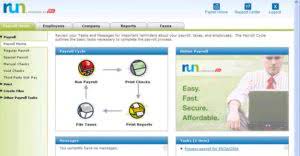
The process starts with filing an I-130 immigrant petition, proceeds to the filing of the immigrant visa application, and ends with the immigrant visa interview, after which time the U.S. If the client had many prior attorneys before he met with you, this could be a red flag. Then once you accept a case, work on it diligently, provide excellent service, and give ongoing status updates to the client. To minimize breakdowns in the relationship or to avoid fee disputes, you want to have good clients who appreciate the value you bring. This arrangement means the attorney charges a fixed fee for the agreed-upon legal service. The client knows exactly what he will pay for the service and usually begins making payments at the outset of representation.
IOLTA and Trust Accounting in Louisiana: A Guide for Small and Mid-Sized Law Firms

Your diligence in managing client funds reflects the firm’s integrity and professionalism. If you have any questions or need clarification on these practices, please don’t hesitate to contact us. Segregating the funds into individual trust ledger accounts will separate client funds from operational accounts. Also, keep clients informed about how their funds are managed to maintain trust. So let’s dive right into the top mistakes lawyers can make with trust accounting, tips for avoiding those mistakes, and best practices to ensure your firm protects its reputation and doesn’t become CARES Act a cautionary tale.

Small Business, Big Impact: How Accounting Services Propel Growth and Sustainability
By following these steps, you can effectively manage your lawyer trust account and stay in compliance with trust accounting regulations. If your firm has trust accounting issues, or if this article resonated with you, contact Little today to see how we can help you design and implement compliant trust accounting practices. On some level, this is understandable—after all, you went to law school to practice law, not be an accountant. In some cases, lawyers who feel this way often forget to maintain proper records, as they’re busy serving their clients. In my time as both a bar prosecutor and defense lawyer, I’ve noticed that most plaintiff’s firms’ trust accounting issues can be traced back to one of three things.

Lawyer-client relationship
Laws and regulations governing trust accounting for lawyers can evolve, making continuous education and staying abreast of legal updates crucial for compliance. Many state bars offer resources, training, and updates to help lawyers maintain their understanding of trust accounting requirements. If you’re looking for software to manage the complexities of trust accounting, ensure it includes all the essential features you need. The right tool can streamline your workflow and ensure compliance with attorney trust account rules.
- This helps ensure your firm is accurately tracking client funds, as you’re required to do by your state bar.
- In light of this, it is good practice to revisit professional websites and advertising materials to make appropriate changes and revisions, if necessary.
- For example, the New York State Bar requires monthly reconciliations of attorney trust accounts, and non-compliance could lead to sanctions or disciplinary action.
- They also work well in complex cases where the representation can be broken into segments and stages.
- As we touched upon in the intro, one of the most dangerous misconceptions in bookkeeping for lawyers is the belief that client trust funds can be borrowed or used for firm expenses.
Proper policies, procedures, and a well-controlled workflow are the keys to success. Schedule a free demo and discover the peace of mind that comes when you automate your law firm’s accounting tasks and use a complete legal practice management solution with integrated legal accounting. Common mistakes include commingling trust and operating funds, failing to perform regular reconciliations, not using the appropriate software, and delegating trust accounting to untrained staff members. Failure to conduct regular reconciliations often results in discrepancies, such as overpayments or missed disbursements, which can spiral into bigger issues. For example, the New York State Bar requires monthly reconciliations of attorney trust accounts, and non-compliance could lead to sanctions or disciplinary action. Navigating these diverse regulations demands thorough understanding and diligent application by legal professionals across various states.
At CoCountant, we specialize in providing tailored bookkeeping services for law firms—from trust account management to ensuring compliance with state bar regulations—keeping your firm audit-ready and protected from costly mistakes. Ensure that client funds are kept in separate accounts, especially those held in IOLTA accounts, to avoid commingling with your firm’s operating funds. To ensure complete transparency and accuracy, set up dedicated trust accounts for each client and track these funds meticulously.

While similar, a client trust account and an escrow account serve different purposes. An escrow account is generally used to hold funds or assets during transactions, like real estate deals, and is managed by a neutral third party. In contrast, a client trust account is specifically for holding and managing client funds related to legal services. A client trust account is like a safe haven for your client’s funds, separate from your firm’s operating accounts. It’s where you hold money on behalf of your clients, ensuring it’s used exclusively for their legal needs and expenses.

Accounting
Client trust accounts are attorney trust account used to manage funds that belong to clients, such as advance fee deposits, settlement proceeds, and other client funds that require safekeeping. The interest generated typically depends on the type of account and the institution holding the funds. As a matter of course, lawyers are confronted with ethical issues in their daily practice.
To learn more about best practices in trust accounting for law firms, continue reading our blog. Managing trust accounts manually without the help of legal accounting software and automation is one of the common mistakes law firms make. Automation helps avoid human error, keeps you compliant, and helps you identify issues and correct them before a problem arises. Managing client trust accounts properly is a fundamental duty of law firms, but errors can Accounting Security occur. A frequent blunder is inadequate documentation, potentially resulting in funds being inaccurately identified as revenue.
Leave a reply





